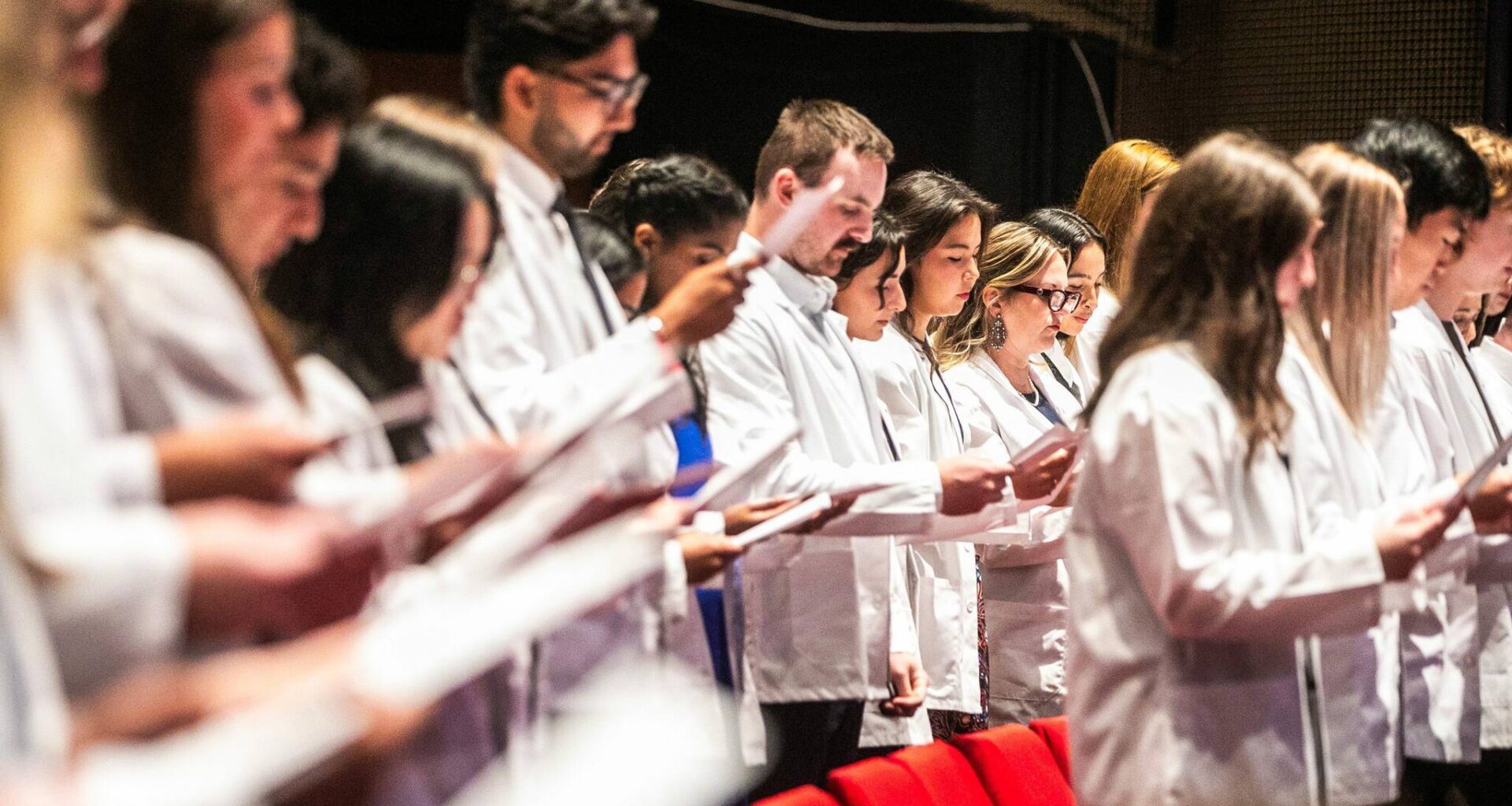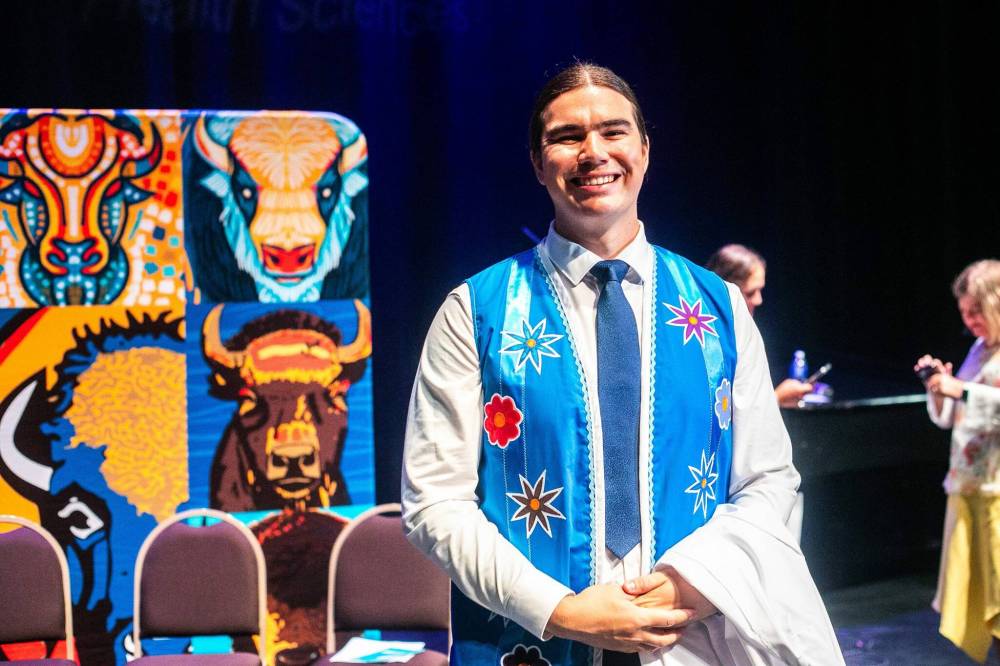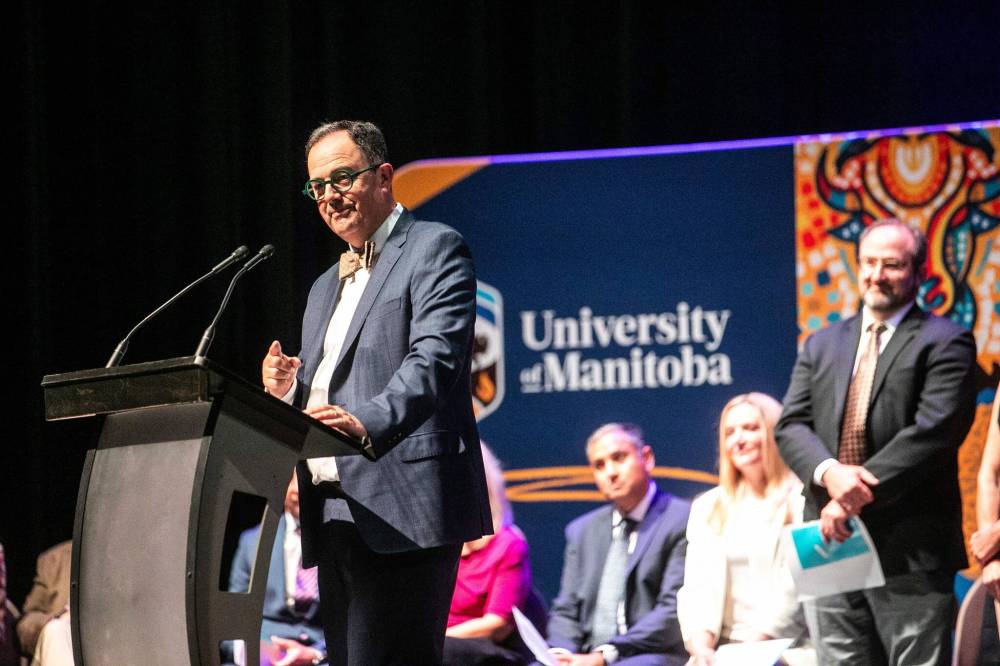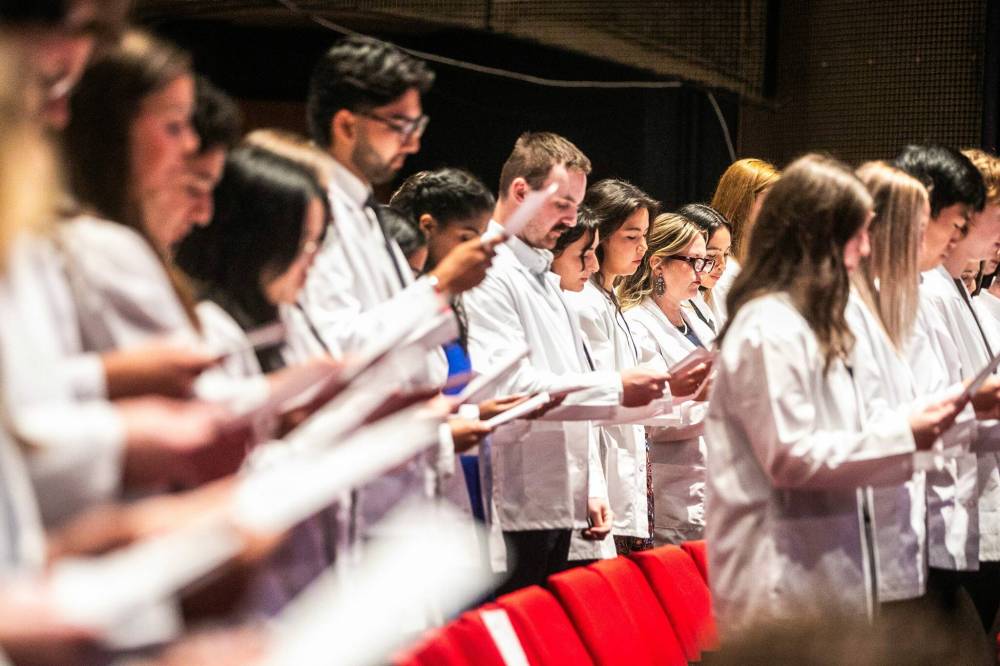Jesse McGregor’s journey to become part of one of the largest classes of incoming medical students in Manitoba’s history took him hundreds of kilometres away from home — but he’ll be back.
As he joined 139 of his classmates to put on their first white coats and mark their entry into the University of Manitoba’s Max Rady College of Medicine Wednesday morning, his loved ones in Norway House Cree Nation and Misipawistik Cree Nation, whom he left at 17 to pursue his studies in Winnipeg, were front of mind.
“I’m not a city kid by any means. I’m a bush kid,” McGregor, 25, said, smiling in his white coat.
MIKAELA MACKENZIE / FREE PRESS
Jesse McGregor: “At the end of all of this, I want to get back up north.”
“At the end of all of this, I want to get back up north.”
The inaugural day ceremonies for the University of Manitoba’s med school Class of 2029 were held at the Centennial Concert Hall for the first time. Students — ranging in age from 20 to 43 — included 11 Indigenous students and 53 students with rural backgrounds. One French-speaking student will be studying in bilingual classes.
“The Max Rady College of Medicine’s goal over the last several years has been to graduate a diverse medical student body that reflects the communities we serve, and I believe we’re achieving that here again today,” said Dr. Peter Nickerson, dean of the Max Rady College of Medicine and the Rady Faculty of Health Sciences.
The class of 140 was tied with 2024 for the largest intake to the U of M’s med school. In 2023, the previous Progressive Conservative government announced it would be adding 40 medical school training seats, with the goal of increasing the number of students per year to 150 from 110. There were 15 seats added in 2023 and another 15 added in 2024.
Speaker George Muswaggon, who is part of a team of elders at the U of M’s Ongomiizwin — Indigenous Institute of Health and Healing, said the 140-year history of the medical college and its students have “an even longer journey to rectify all that has happened” in the time since its conception.
“For all the progress we’ve made in medicine, it is not lost to me that measles has come back,” he said. “You will have to change the trajectory of that, and we bank on you, we count on you.”
MIKAELA MACKENZIE / FREE PRESS
Dr. Peter Nickerson speaks at the inaugural day ceremonies for the University of Manitoba’s med school Class of 2029, at the Centennial Concert Hall, Wednesday.
Manitoba ranks second to last on the number of physicians per capita in Canada, with 219 doctors per 100,000 residents. The national average is 243. Manitoba would have to hire 346 more doctors to hit the national average.
“The premier would not be happy if I didn’t make very, very clear that we expect, and we hope, and we’re humbly asking that each and every one of you just stay right here and practise in Manitoba,” Health Minister Uzoma Asagwara joked at Wednesday’s ceremonies.
Winnipeg Free Press | Newsletter
![]()
Tara Lee-Anne Clarke, a 43-year-old incoming student who worked as a paramedic in rural Manitoba and later as a physician assistant in northern and remote communities, plans to take Asagwara up on the offer.
“The responsibility is not lost on me,” said the mother of five, who expects to stay in the province. “I think I’m prepared to shoulder that and distribute it amongst my classmates … I think we will be able to help with some of the gaps that we currently face in specific human health-care resource shortages.”
McGregor, who hopes to become a family physician, pointed to developments in northern communities, like the health-care centre that opened in Norway House last year, as ways to improve equity of care and bring more doctors to remote areas.
MIKAELA MACKENZIE / FREE PRESS
140 University of Manitoba Max Rady College of Medicine classmates recite the physicianճ pledge at the white coat ceremony at the Centennial Concert Hall on Wednesday.
“I think about some of the inequities in health care right now, and the dire need to return culturally relevant and culturally safe care to the north,” he said. “I think about our people and the idea of them having to, for example, leave community to access adequate care.”
malak.abas@freepress.mb.ca

Malak Abas is a city reporter at the Free Press. Born and raised in Winnipeg’s North End, she led the campus paper at the University of Manitoba before joining the Free Press in 2020. Read more about Malak.
Every piece of reporting Malak produces is reviewed by an editing team before it is posted online or published in print — part of the Free Press‘s tradition, since 1872, of producing reliable independent journalism. Read more about Free Press’s history and mandate, and learn how our newsroom operates.
Our newsroom depends on a growing audience of readers to power our journalism. If you are not a paid reader, please consider becoming a subscriber.
Our newsroom depends on its audience of readers to power our journalism. Thank you for your support.




